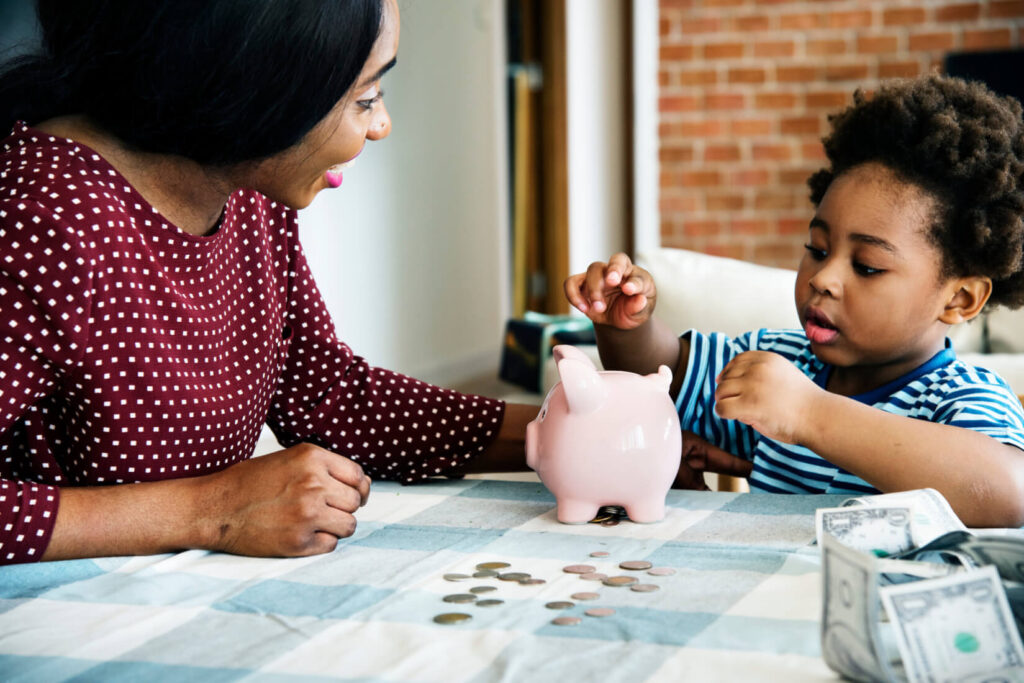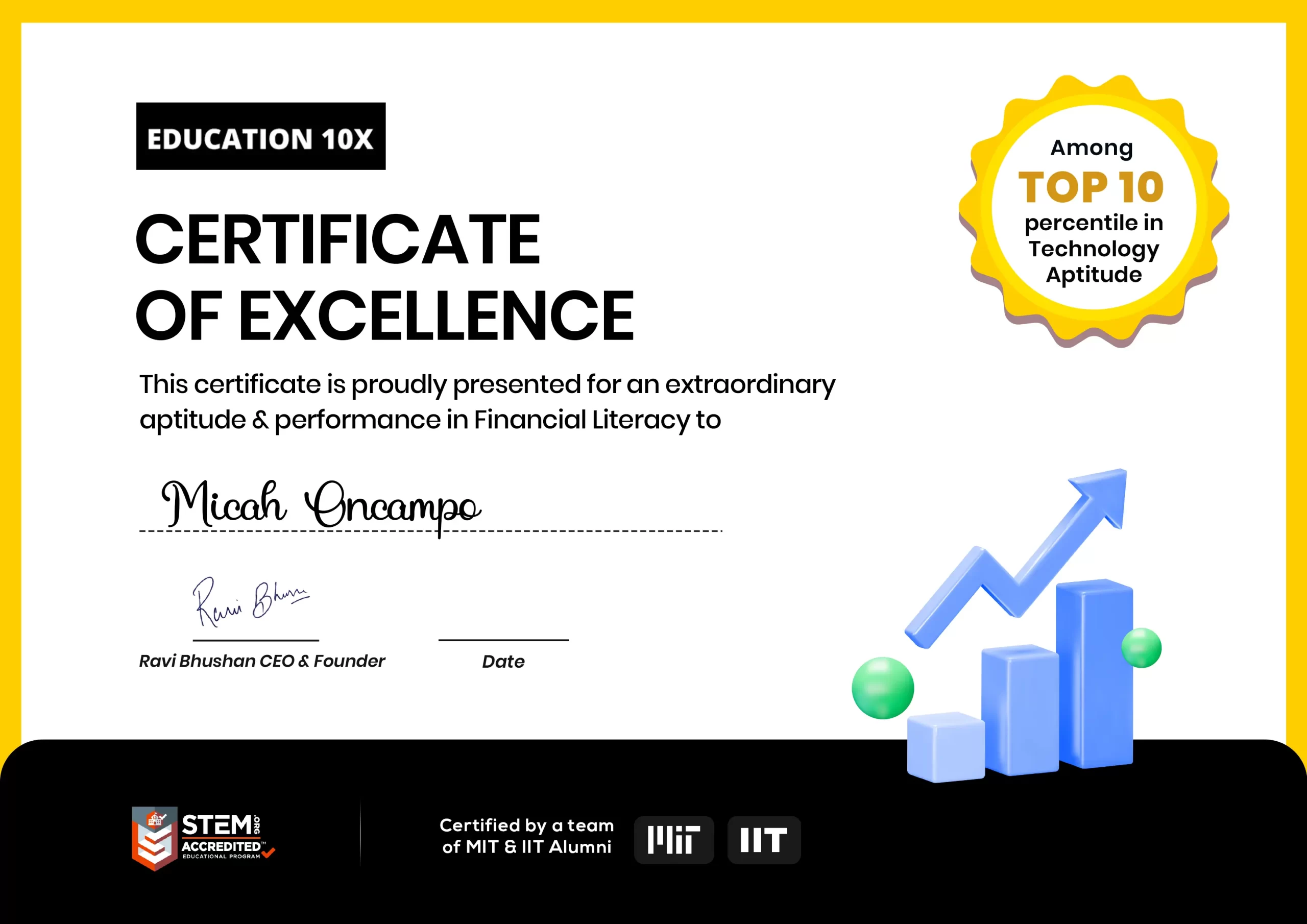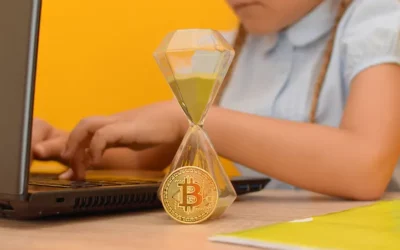“Parenthood is a crash course in the art of negotiation. Want your kid to eat their vegetables? Better have a bribe ready”. It can get a little cumbersome trying to teach your kids about saving money when they’re already spending it all in a game parlor trying to smash the monster.
Why not, It’s a long way ahead for them to eventually be ready for the life ahead. Well, that’s what most parents think.
Kids learn through challenges, unleashing their thoughts and molding them can help your children learn important concepts while playing.

Teaching kids can be rewarding and challenging. Here we list financial literacy activities that can help your kids develop important skills.
Table of contents
Financial Literacy Activities for Kids
Allowance and Chores
Giving kids an allowance for completing household chores is a great way to teach them about earning money and budgeting for kids. They can also learn the value of hard work and responsibility. When it comes to teaching financial literacy to kids, many parents believe an allowance is a great tool.
Bank Roleplay
Kids often have the urge to spend all the money they get. The parent acts as a bank and the kid can choose to keep some money with them, in order to earn some interest (extra money) for not spending their pocket money. This activity will teach them about delayed gratification and the functioning of a bank. Kids can be rewarded for not spending their money, earning interest every month.
Yes Day
Teaching Financial Literacy can be hard when parents are flushed with unlimited demands from kids. What if there was a yes day to celebrate this? Yes, the day can happen every weekend or every month during which the kids can fulfill their wishes. This will teach the kids the importance of patience and managing their desires and wants without letting them overpower them.
Creating a savings chart
This chart can help you manage finance for kids in a little more creative way. Moreover, the kids can discuss ways to reduce expenses, instilling a sense of financial responsibility. This will teach them the importance of creating a budget.
Play money games
There are plenty of board games that teach learning money for kids, money management, like Monopoly or the Game of Life. This can simulate some of the real-life financial transactions while celebrating family time with your little ones. Alternatively, you could create your own banking game for kids using cards and tokens.

Market Imaginaire
Play a pretend store or bank with your child, using play money and real-life scenarios. This can help them practice making transactions, counting money, and understanding the value of goods and services. The kids learn valuable money topics while being the decision maker.
Creation Manifesto
Setting up lemonade stalls, or selling handmade bracelets can provide a real-life experience to enhance a child’s understanding of running a business while doing something they love and enjoy. This will help them evaluate ideas and look for opportunities. Kids will learn about profit making, and categorizing income, and expenses. The idea is to instigate valuable takeaways like the act of profit making, categorizing income and expenses, assets, and liabilities, etc.
Benefits of Teaching Financial Literacy to Kids
Building Foundation
Financial literacy activities not only help in developing life skills but also help in building a foundation in core math skills when the kids are subjected to a growth-focused simulated environment. They are also to introduce theoretical concepts of money. Teaching Financial Literacy lets kids learn important life lessons while easing the pressure on them through the use of engaging and fun activities. What is done practically, has an everlasting impact.
Mapping their way ahead
Teaching kids about financial literacy instills an inbuilt knowledge advantage that could be useful in the long run. This can give them a head start among their peers and help kids become more financially independent.
Avoiding Financial Mistakes
Humans learn from their mistakes By learning about financial concepts at a young age, your kids can avoid common financial mistakes that you have made during the course of your life, accumulating life experience.
Encouraging Entrepreneurship
Schools teach students to become employees, by encouraging rote- learning, and mob- mentality.
The kids grow up being conditioned into becoming a hollow structure too fearful to risk and think out of the box. Early Learning gives them space to seek Entrepreneurial opportunities.
Improved Job Prospects
Financial literacy activities can also help individuals develop skills that are highly valued by employers, such as financial planning, budgeting, and analysis. This can improve their job prospects and lead to higher-paying career opportunities.
Improved financial decision-making
Financial literacy activities can help individuals understand important financial concepts and strategies, allowing them to make better decisions about their money. This can help them achieve their financial goals, manage their debts, and save for the future.
Resources for Teaching Financial Literacy to Kids
There are several resources available that can help teach financial literacy to kids. Here are the suggestions:
Templates
Kids need to learn how to count money, and what better way than with this free download of classroom fake money printables for kids?
Books
Books serve as a guide to embracing theoretical knowledge while reading perspectives and Experiences
Financial Literacy Classes
Specialized courses can help your children achieve excellence through an age-appropriate curriculum, fun activities incorporated with homework and projects, and visual orientation on complex topics. With a mission to empower children with financial knowledge from an early age, FinCHAMPS introduces concepts like saving, budgeting, and investing in a fun and engaging way. Through interactive activities, games, and real-life scenarios, children learn the value of money, how to make smart financial decisions, and develop responsible money habits. FinCHAMPS by BrightChamps instills a sense of financial awareness and prepares children for a financially secure future.
Conclusion

With technology becoming an increasingly important part of our daily lives, we must introduce financial literacy to our children as soon as possible.
Because the economy is ever-changing and is changing the way we use and handle money, children will be better prepared for the future. In fact, such banking games can also be ways for kids to make money in the future as they learn several tactics that can be applied to real-life situations.
Having adequate knowledge is vital for growth, understanding, and helping kids become financially independent. Also, don’t forget to check out this blog, where we empower the future with essential financial education for kids and finance for kids nurturing their financial confidence from an early age!
The world is changing at a faster pace, and those who understand its ways can reach the shore of success, while others will plunge into the depths of ignorance, and vain. Brightchamps recognizes the need to inculcate important life skills and tries to bridge the gap by introducing core future life skills and specially designed courses on financial literacy.
To get your hands on more such educational, parenting and free resources on coding, robotics, game development, etc., do check out the Brightchamps Blog Page now!
Frequently asked questions (FAQs)
To ensure your child’s financial security, start early by teaching them about budgeting, saving, and investing.
The age at which one should aim to be financially stable varies, but setting goals and working towards stability is important throughout adulthood.
To prove financial stability, provide documentation such as bank statements, pay stubs, and credit reports that demonstrate a consistent income and responsible financial management.
Teach your child financial savvy by involving them in age-appropriate money discussions, setting savings goals, and encouraging responsible spending habits.
Parental financial abuse refers to the manipulation or control of a child’s finances by a parent, often resulting in financial instability or dependence.
The cost of raising a child financially varies based on factors such as location, income, and lifestyle, but it generally requires a significant financial commitment.
The age at which kids should strive for financial independence varies, but encouraging financial responsibility and self-sufficiency is important during adolescence and beyond.
Help build your child’s wealth by encouraging them to save, invest, and make wise financial decisions early on, setting them up for a secure financial future.
Prepare your child for the financial future by teaching them about money management, investing, and the importance of financial planning for their goals and aspirations.
The amount to save per month for your child depends on your financial situation and goals, but setting aside a percentage of your income is a good starting point.
The percentage of income that should go towards kids can vary based on individual circumstances, but aiming for around 10-20% can help cover their expenses and save for their future.
Allowing your child to spend their own money can be a valuable learning experience, teaching them about budgeting, decision-making, and the consequences of their choices.










